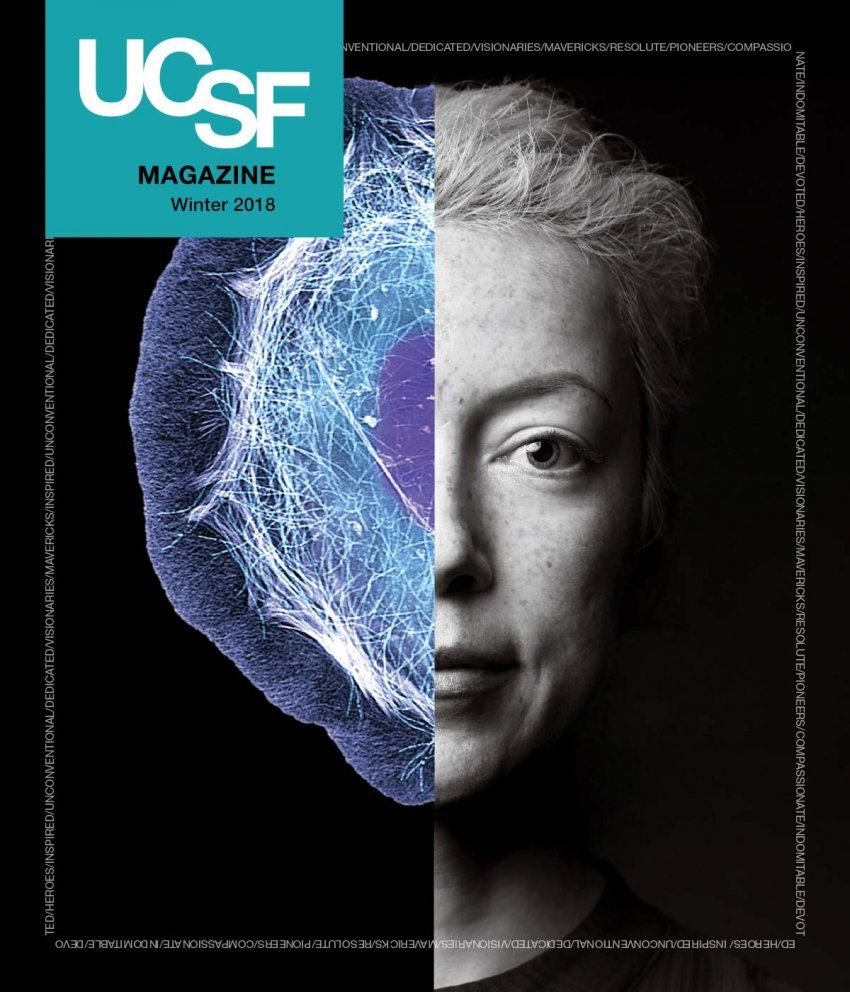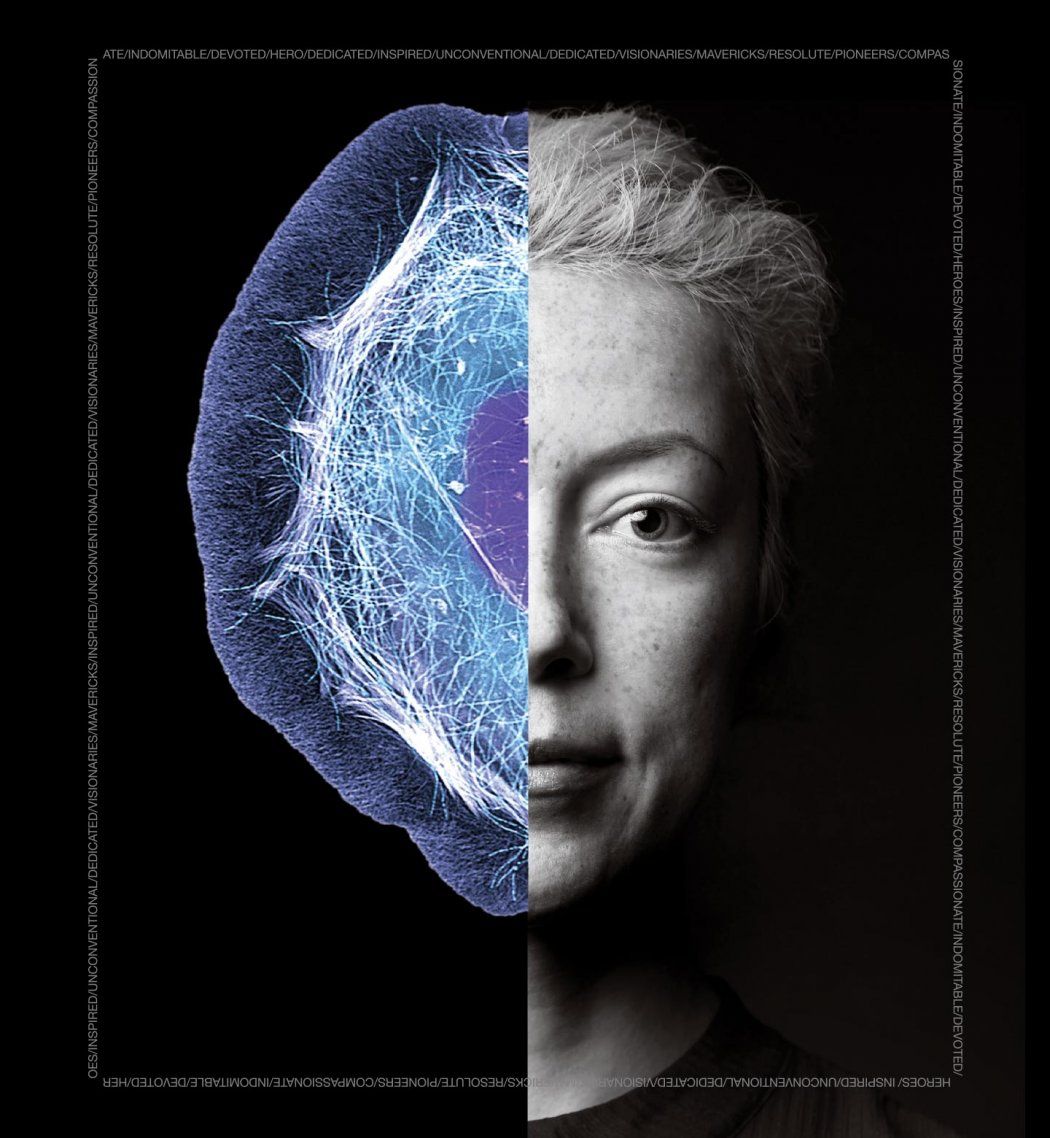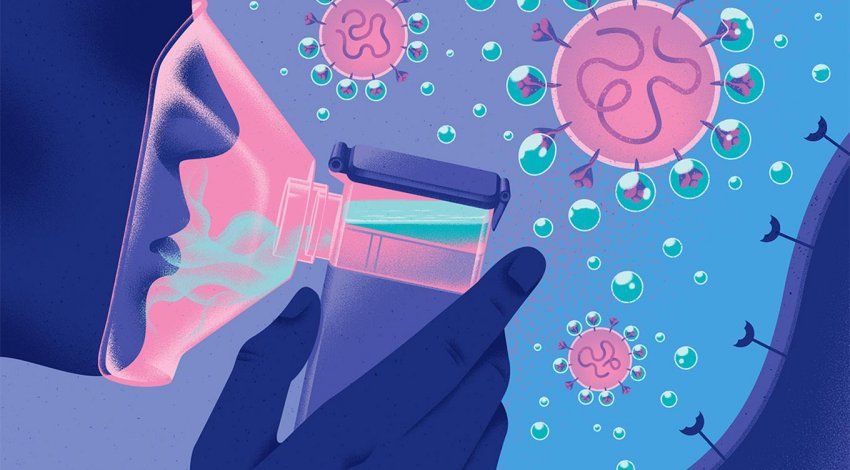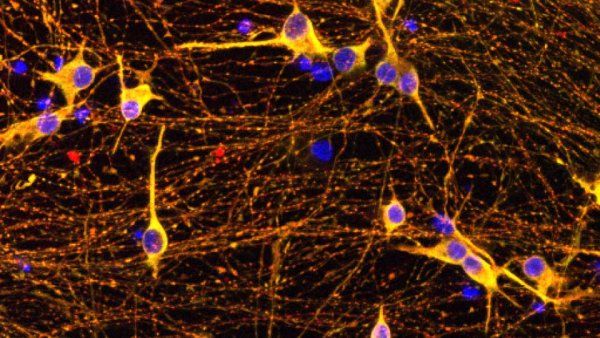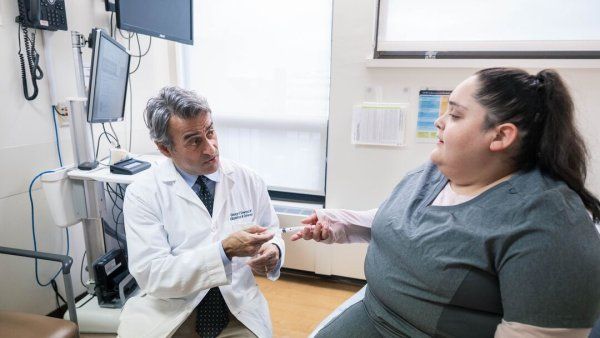
UCSF: The Campaign is taking on the world’s most complex health challenges, powered by an exceptional community of mavericks, innovators, and advocates. Together we will make the Bay Area and our world healthier for all. Join us as we decode life to improve health, leverage discovery to revolutionize care, and partner to achieve health equity.
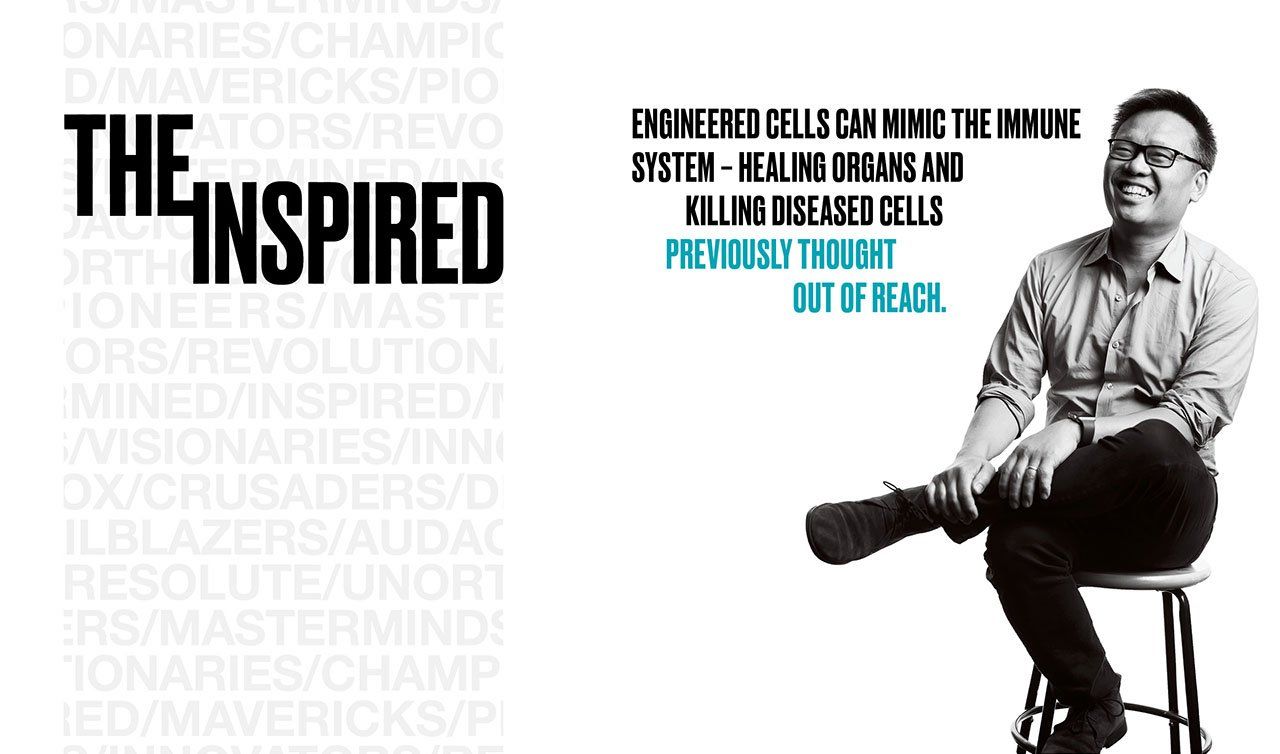
Photo: Steve Babuljak
The inspired who are engineering immune cells to kill cancer
UCSF scientist Wendell Lim, PhD, programs cells to fight disease and is ushering in a new era of therapeutics. Right now, he and other UCSF researchers are programming immune cells to recognize, hunt, and kill diseased cells in cancers that were deemed universally lethal just five years ago. They’re offering not just short extensions of life, but in some cases cures. Yet the promise of cell engineering extends far beyond cancer. Engineered cells could someday halt dementia or repair damaged spinal tissue.
Wendell Lim is the Byers Distinguished Professor.
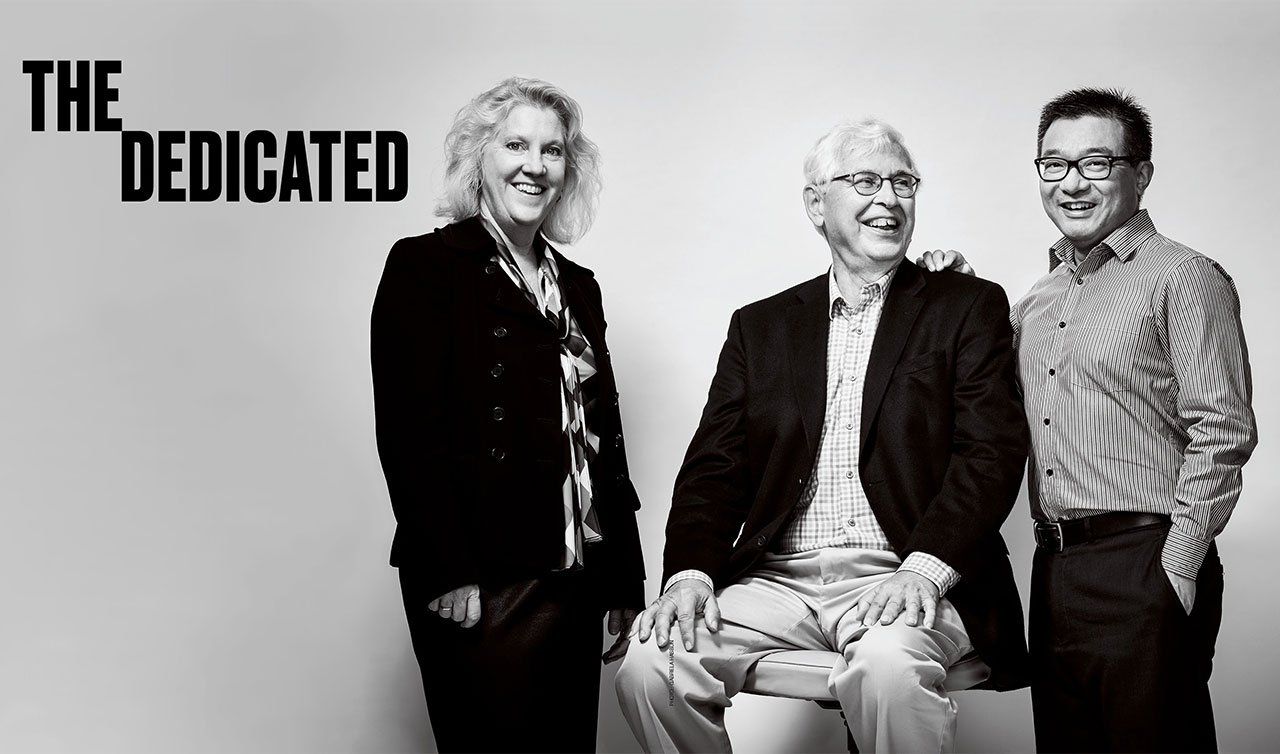
Photo: Gabriela Hasbun
The dedicated who are racing to eliminate alarm fatigue in hospitals
Patient-monitoring technology is alarmingly imperfect. With a false-positive rate of 89 percent, current equipment can cause “alarm-fatigued” nurses to ignore or switch off alerts and risk missing an emergency. At UCSF, David Mortara, PhD (center), a monitoring-equipment expert and philanthropist, is taking aim at the problem with a generous gift to the School of Nursing that will establish the Center for Physiologic Research. Working with Mortara, nurse-scientist Michele Pelter, MS ’95, PhD ’01 (left), and biomedical engineer Xiao Hu, PhD (right), are developing a next-generation technology that will not only provide a more complete picture of each patient, but also sound the alarm only when a nurse’s attention is truly required.
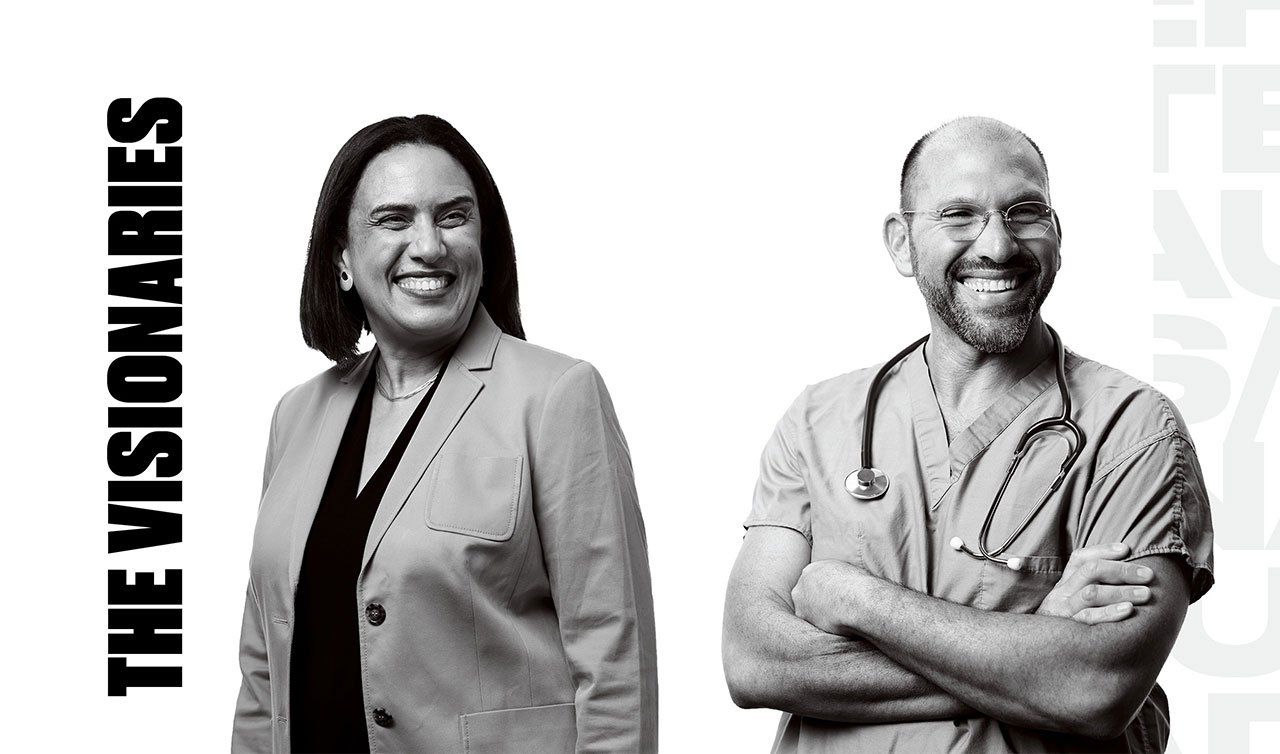
Photo: Steve Babuljak
The visionaries who are looking beyond medicine to tackle children’s biggest health risks
To prevent type 2 diabetes in low-income communities, physicians at UCSF are inspiring kids and teens to serve as agents of broader change.
Led by Kirsten Bibbins-Domingo, PhD ’94, MD ’99, MAS ’04, UCSF’s Center for Vulnerable Populations collaborates with Bay Area youth groups to get kids to create poetry, music, and videos about obesity and diabetes. The award-winning project has reached millions on YouTube.
Kirsten Bibbins-Domingo is the Lee Goldman, MD, Professor of Medicine.
Prematurity is the leading cause of death worldwide among children under age 5, and socioeconomics are the strongest determinant of an infant’s risk of prematurity. Larry Rand, MD, sparked the creation of the Preterm Birth Initiative at UCSF and leads the program in California. His team looks not only at genetics but also at social, economic, and environmental issues to develop a precise understanding of this epidemic – and how to stop it.(Another arm of the program, based in East Africa, focuses on interventions tailored for that region.)
Larry Rand is the Lynne and Marc Benioff Professor of Maternal and Fetal Medicine.
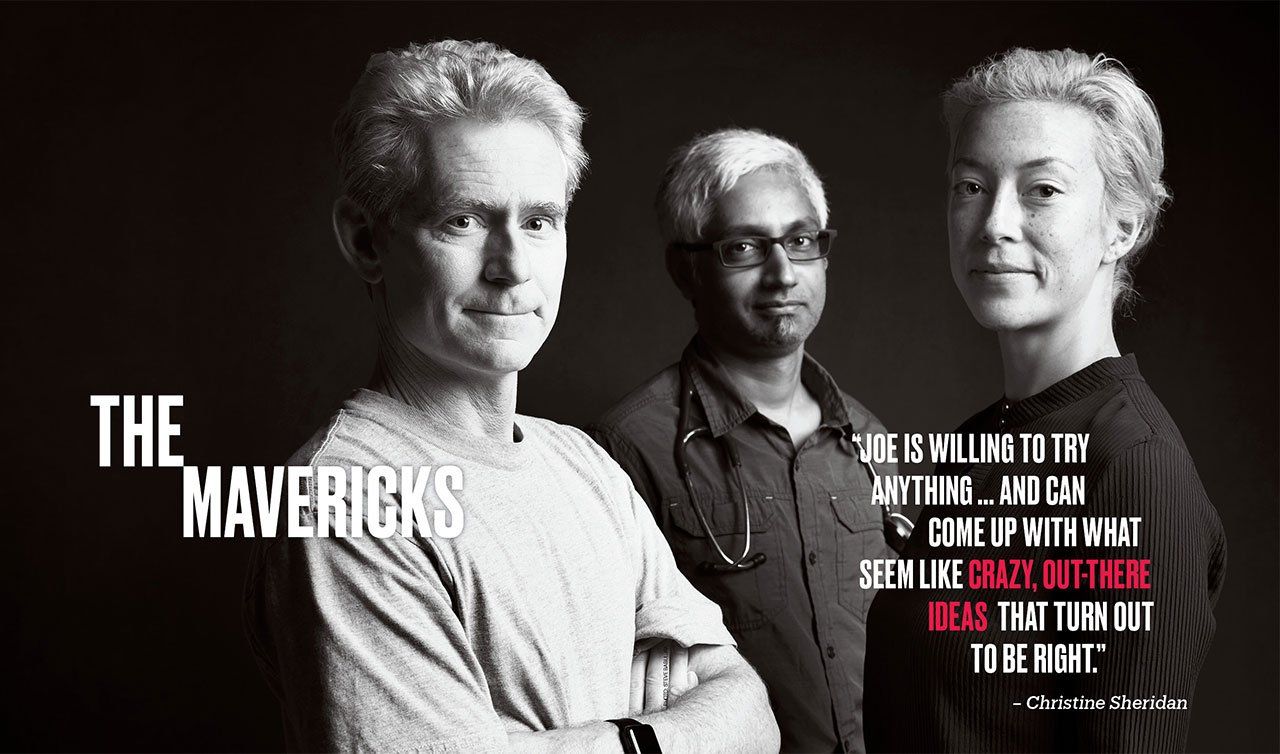
Photo: Steve Babuljak
The mavericks who are impeding the world’s deadliest diseases
For Christine Sheridan, a doctoral candidate in biomedical sciences (right), working in the lab of acclaimed virus hunter Joseph DeRisi, PhD (left), is an opportunity to pursue unorthodox ideas.
DeRisi invented the Virochip, a virus detector not much bigger than a stick of gum. He used it to identify the SARS virus, then later adapted it to combat malaria. Malaria kills hundreds of thousands of children under age 5 every year, 95 percent of them in Africa. Those figures mean Sheridan’s own work, on blocking placental malaria, is potentially transformative. DeRisi’s work has also inspired Jayant Rajan, MD, PhD (rear), who studies tuberculosis.
Sheridan’s research is supported by the Discovery Fellows Program, UC’s largest PhD endowment, which funds nearly 700 PhD students in the basic sciences.
A $30-million gift from Sir Michael Moritz and Harriet Heyman launched the Discovery Fellows program in 2013.
Joseph DeRisi is the Gordon M. Tomkins Professor.
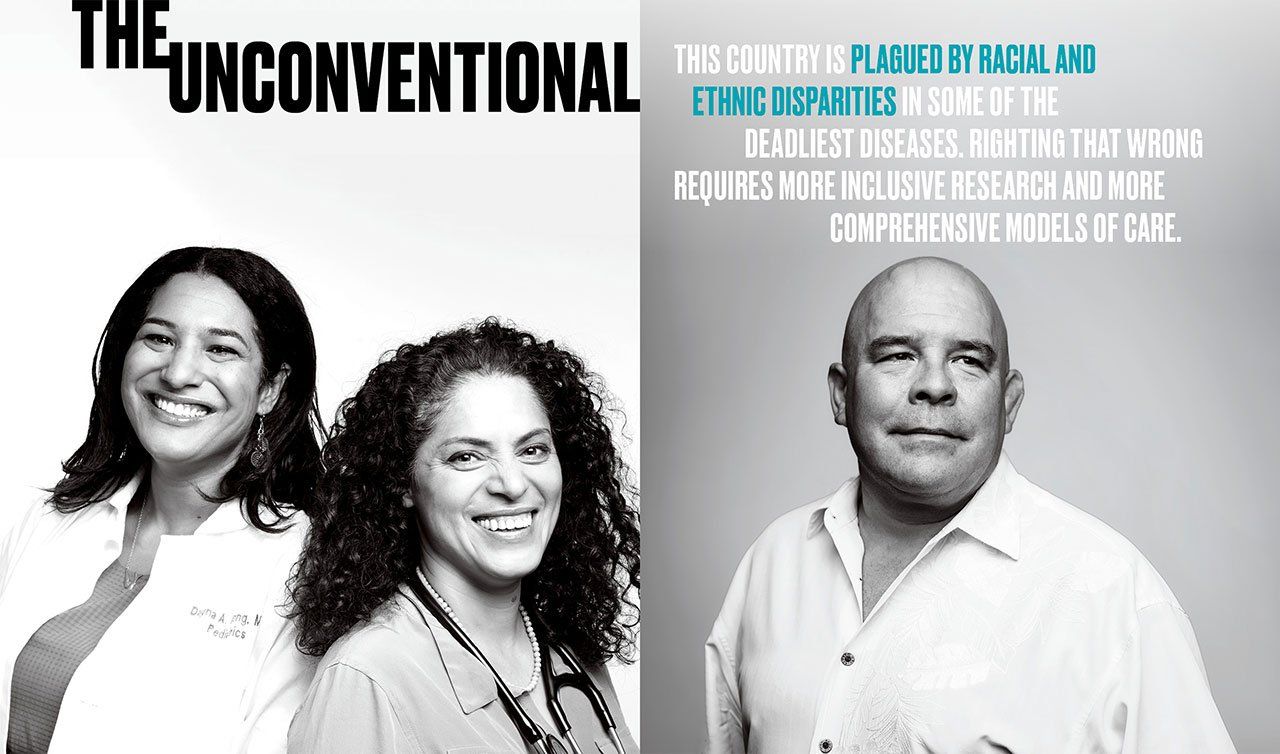
Photos: Steve Babuljak
The unconventional who are helping children from all backgrounds breathe easier
Asthma hits poor and minority communities especially hard and may be the best-known example of a health disparity. But what does it really mean to challenge such inequity? Pediatrician Dayna Long, MD (far left), pioneered a program that connects families to resources for issues like homelessness and food insecurity, which can have more impact on a child’s health than medical care.
Pediatrician Nooshin Razani, MD ’01, MPH (left), brings her young patients into the woods for a big dose of awe – and the better health outcomes her research has demonstrated.
Esteban Burchard, MD, MPH (right), recently discovered that most respiratory studies have included far too few minorities to be meaningful; he is undertaking the nation’s most comprehensive gene-environment study of asthma in minority children.
Esteban Burchard is the Harry Wm. and Diana V. Hind Distinguished Professor of Pharmaceutical Sciences II.
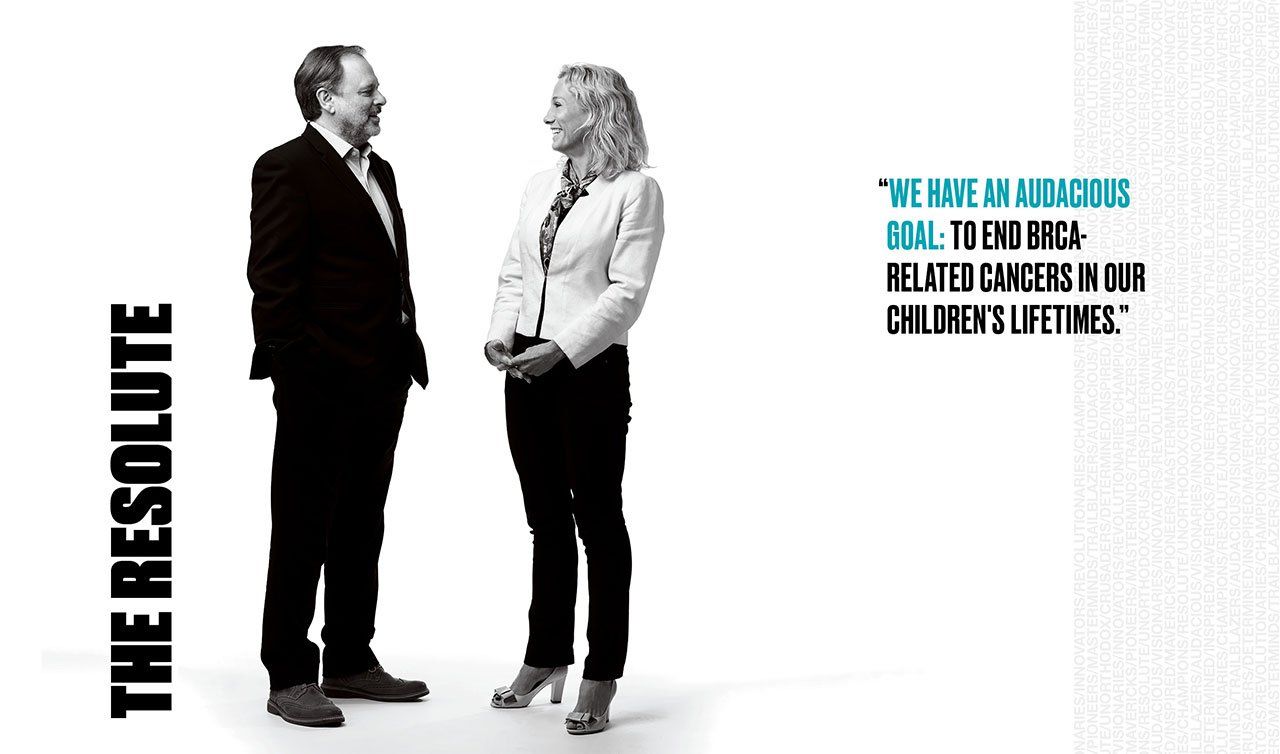
Photo: Steve Babuljak
The resolute who are joining forces to eradicate inherited cancers
The BRCA1 and BRCA2 genes significantly elevate a person’s chance of being diagnosed with multiple cancers – including breast, ovarian, skin, and prostate. Alan Ashworth, PhD, president of the UCSF Helen Diller Family Comprehensive Cancer Center, was part of the team that first identified the BRCA2 gene. Ten years later, he discovered a revolutionary way to kill off BRCA cancers by administering a drug that exploits a flaw in cells with the mutation. Physician-scientist Pamela Munster, MD, works at the intersection of research and care – translating laboratory discoveries in real time into treatments for her patients, who are in the most advanced stages of disease.
A carrier of the BRCA2 mutation herself, Munster knows firsthand the challenges of navigating multiple cancer risks for herself and her children. Together, she and Ashworth founded the UCSF Center for BRCA Research, which brings together the defining work of both their careers.
Alan Ashworth is the E. Dixon Heise Distinguished Professor of Oncology.
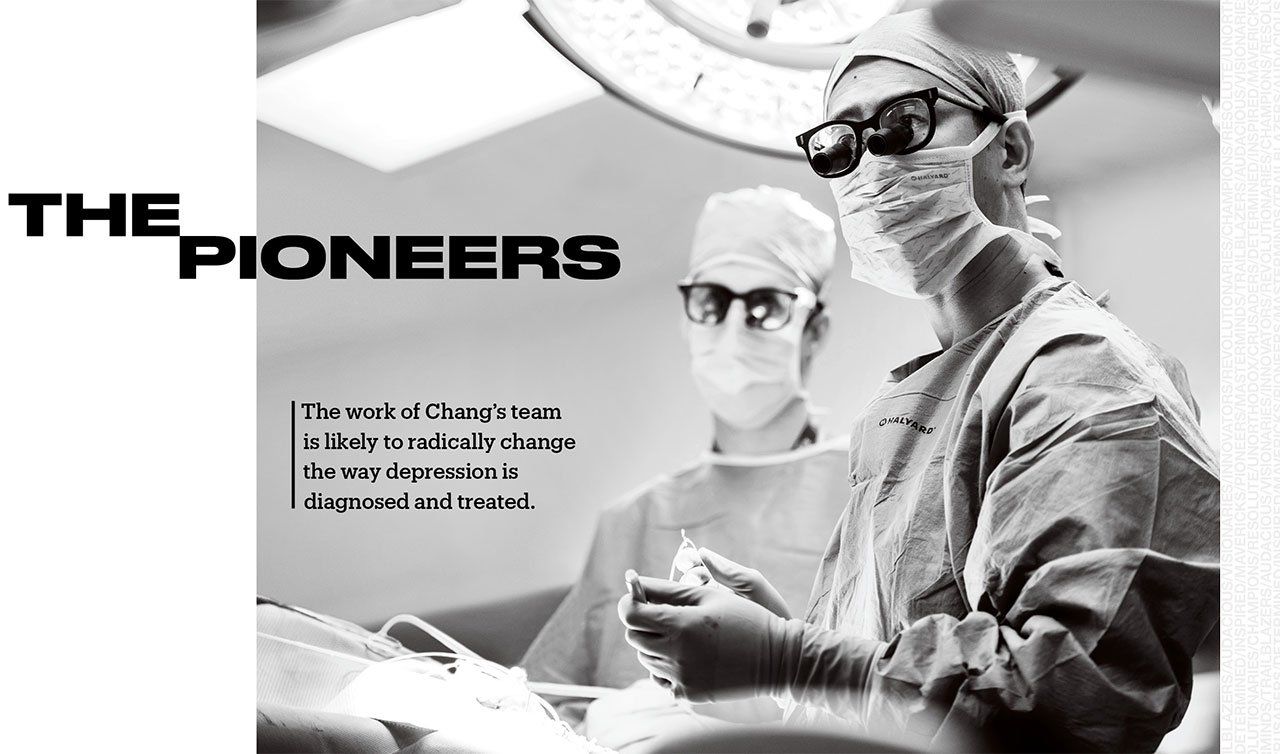
Photo: Barbara Ries
The pioneers who are mapping the brain to understand what makes us human
Neurosurgeon Edward Chang, MD ’04 (right), implants intricate networks of electrodes on the surface of patients’ brains to map regions that trigger epilepsy, control anxiety and depression, and enable speech. The goal: Pinpoint networks in the brain that go awry and try to remodel them to restore healthy functioning. His work bridges psychiatry, neurology, and engineering, and will ultimately answer questions about what makes us human. His team’s efforts could one day lead to an implanted device that emits a minute impulse to shift brain circuitry from unhealthy to healthy. Such a device could enable paralyzed patients to speak and move and help the brain “unlearn” depression and anxiety.
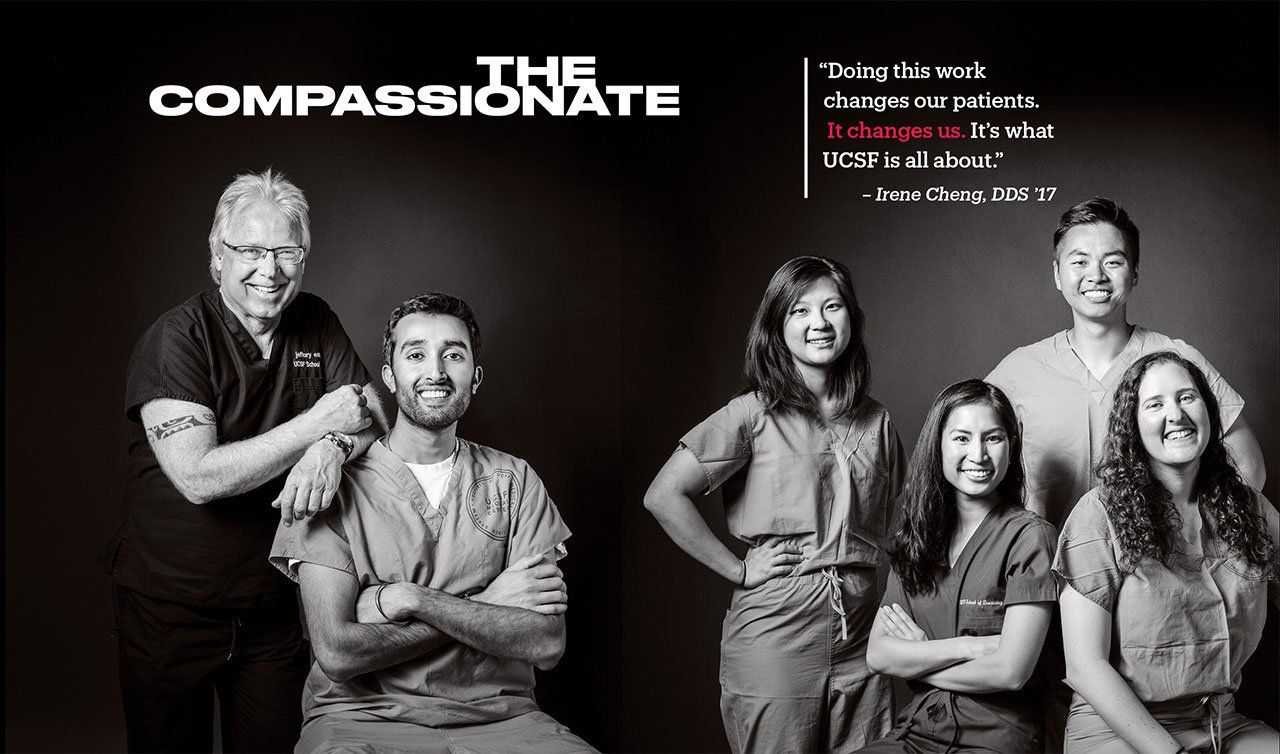
Photo: Elena Zhukova
The compassionate who are restoring smiles and hope
“They aren’t just fixing holes in people’s teeth … they are fixing holes in people’s lives!” says Jeff Eaton, DDS ’83 (far left), faculty director of the UCSF Community Dental Clinic (CDC), about the student volunteers who run the clinic.
The clinic provides comprehensive no-cost dental services to displaced refugees, undocumented immigrants, and the uninsured homeless. Arvin Pal (left), a third-year student and the clinic director, says the people treated at the CDC see their lives change. “For the first time, they get to see a different, better version of themselves.”
Right side (left to right): CDC student volunteers Julianna Ko, Victoria Nguyen, Michael Nguyen, and Avigael Lerman.
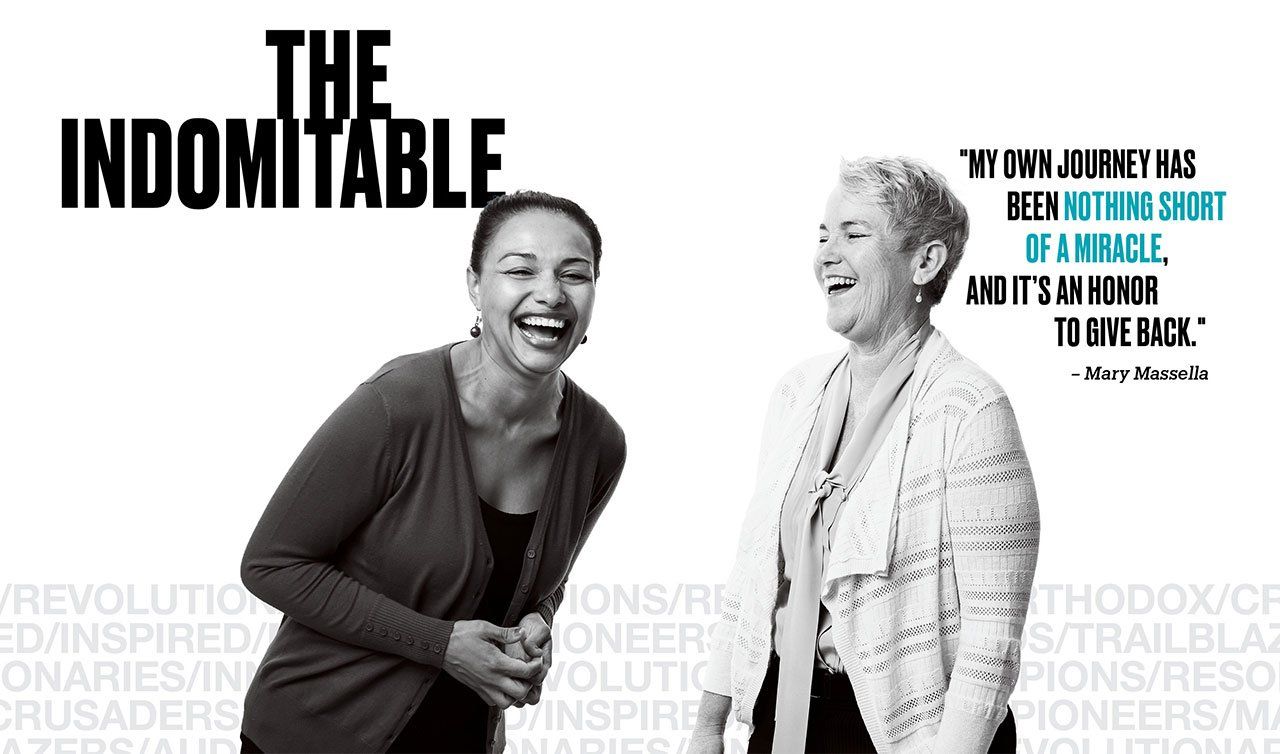
Photo: Steve Babuljak
The indomitable who are stemming diabetes in vulnerable communities
Mary Massella’s journey to UCSF started in poverty. She left Guatemala, determined to get an education, and earned an MS in nursing at UCSF in 2017, thanks to a fellowship. Massella (left) is now not only thriving but also giving back to those facing similar challenges. Her faculty mentor, Maureen McGrath, RN, MS ’95 (right), encouraged her to pursue the School of Nursing’s pioneering diabetes minor program, which McGrath directs. Massella gained the tools she needed to care for the many families in her community impacted by the disease.
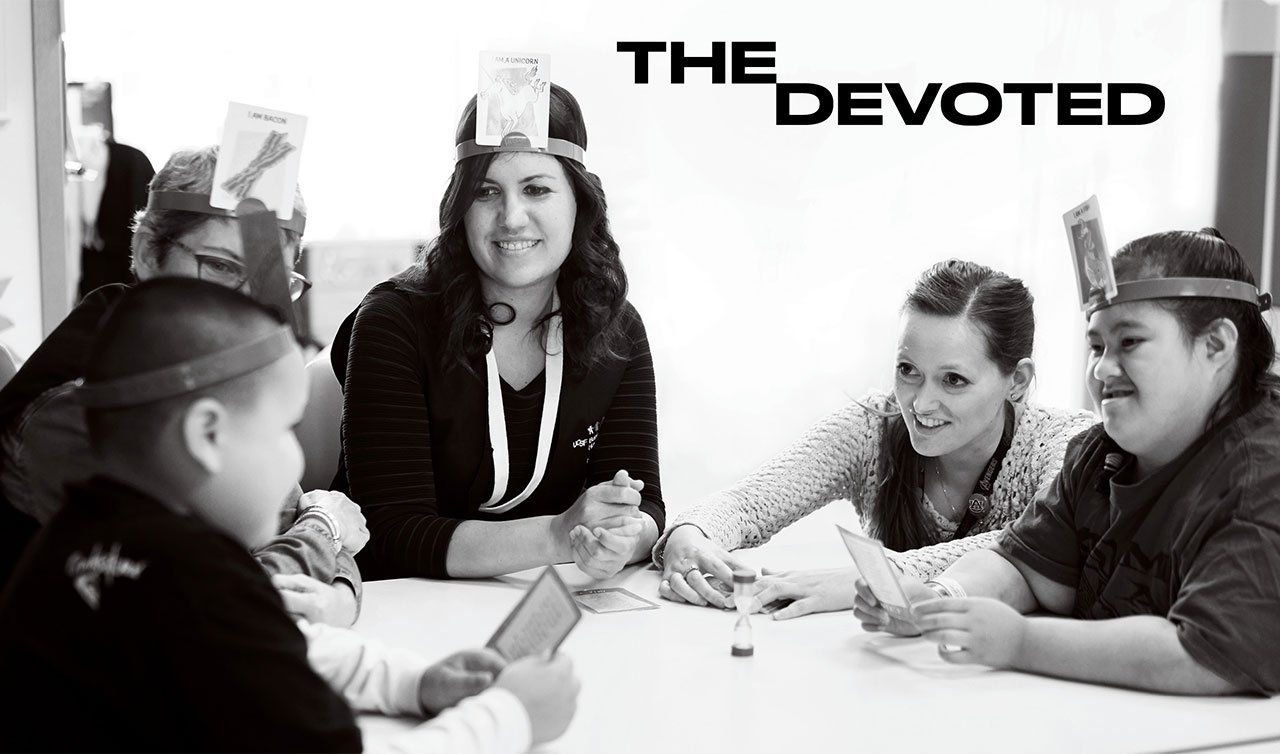
Photo: Steve Babuljak
The devoted who are helping sick kids carry on – and keep learning
The Marie Wattis School at UCSF Benioff Children’s Hospital San Francisco is in session every weekday, with 10 teachers serving more than 60 students a day. Pictured here, teacher and schoolroom coordinator Erika Shue (second from right) leads students and volunteers in an interactive game called Hedbanz. She and her fellow teachers coordinate with the kids’ regular schools to provide academic continuity during hospitalizations as well as a place to have fun, stay positive, and, for a little while, feel normal.
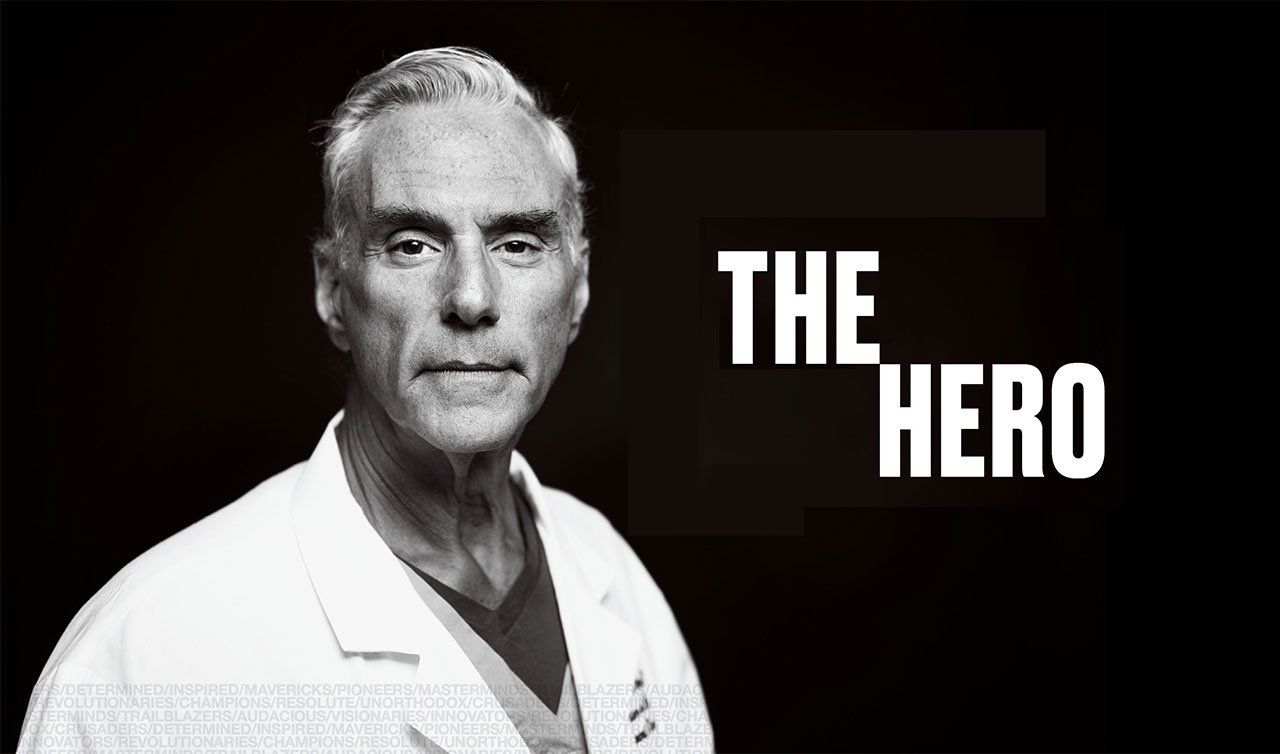
Photo: Steve Babuljak
The hero who is blasting through boundaries to cure brain cancer
Over the last 20 years, neurosurgeon Mitchel Berger, MD, has tripled the post-diagnosis life span of his patients with glioblastoma, an especially aggressive brain tumor. He’s achieved that with better-targeted drug delivery and radiation and advanced imaging that enables more aggressive but safer surgery. His research has also uncovered biomarkers in brain tumors that allow Berger, who is beloved by his patients, to offer them highly personalized therapies from the outset.
Mitchel Berger is the Berthold and Belle N. Guggenhime Professor.
